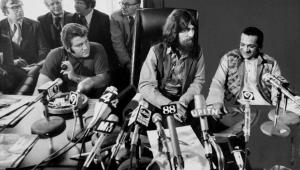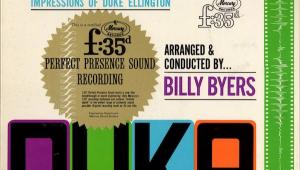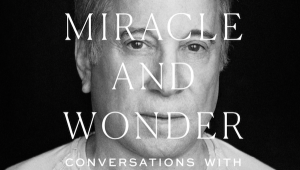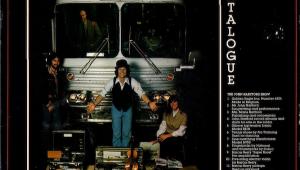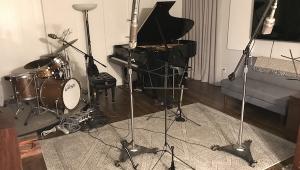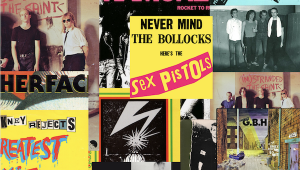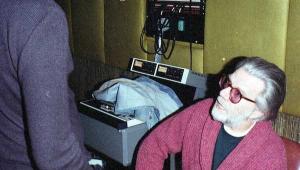Thank you for this excellent read!
Michael Chapman Fully Qualified Survivor (Harvest) and 50 (Paradise of Bachelors) ---The Records You Didn’t Know You Needed #8 Part 2

Club work was scarce, but “Postcards of Scarborough” brought out enough fans to make a living. Chapman himself commented, “In the eighties, everyone forgot about me. I was signed to this record label called Planet. The guy operated out of a pub in Colne Lancashire, a parallel universe. His friends were called things like Mick The Murderer, The Cat, and Cider Ronnie.” In 1990, Chapman had a very serious heart attack. He recovered and began performing again after a nearly two-year layoff, but recordings were few. His fortunes changed in 1998, when, after playing a gig in a church in Amherst Massachusetts, he met Sonic Youth’s Thurston Moore. They began collaborating, which led to recordings and tours with Jack Rose, Steve Gunn, and other much younger musicians. From 1998 until his death, Chapman frequently toured clubs in the U.S and U.K. and released approximately 30 albums that ranged well beyond folk rock to include country, blues, Americana, solo instrumental guitar compositions, some with Grant Green style jazz soloing, improvisational feedback noise pieces, and ambient music.
In 2017, to celebrate fifty years in the music business, Chapman recorded the album 50 , which was released four days before his seventy-sixth birthday. It was his first full band accompanied studio album in nearly twenty years. Called by him his “American record&rdquo, the record, recorded in Westtown, New York, was produced by Chapman fan, Steve Gunn with Chapman backed by s small ensemble consisting of Gunn (guitar, drums, vocals), Nathan Bowles (drums, banjo, piano, organ, vocals), James Elkington (guitar, piano) and Jimy SeiTang (bass, synthesizers, vocals). Bridget St. John, another legendary British early 70s folk-rock artist, provided backup vocals on some songs.
The LP hype sticker promotes 50 as a “late career master work.” Hype is not always B.S.; sometimes it’s just the truth. I believe it is a “masterwork” and that it is of the same quality as the best 2000s albums by his near precise contemporary and fellow old man with an ancient truths voice---Bob Dylan. Although not intended as such, 50 would serve as an excellent final statement and summation of Chapman’s career, revisiting songs from earlier albums going as far back as 1979, his self described “old and ruined, a bit like me” voice giving them added meaning and power. The arrangements, probably by Gunn but possibly with Chapman and the rest of the band, are brilliantly appropriate. The instruments create a mysterious, ominous, nightfall mood that envelopes Chapman’s guitar and voice. There are no dance beats, jamming, flashy solos, complex harmony vocals, or anything that distracts from the songs and Chapman, not raging against the dying of the light, but just telling the hard truth of life as he sees it.
“Spanish Incident” is a song about the hazards of being on the road, something Chapman knew a lot about. His vehicle is broken down and he is waiting in a bar for an apparently crooked or incompetent mechanic to fix it. I doubt Mick and Keith were ever in this situation. Chapman is stubborn and defiant. Quitting is not an option. “They tell me this road is a killer, you can tell by the wreckage it makes. So let’s go a little bit further, to see if we got what it takes.” The song is powered by tasteful drumming and the rhythmic (clawhammer?) banjo playing of Nathan Bowles who, after a false ending, also plays an excellent solo on the tune’s coda &Idquo;Sometimes You Just Drive” is another “on the road” song. “Don’t let it rain, don’t let it pour; don’t let the wind blow through my door. How did I get here, lucky to be alive? Sometimes you live, and sometimes you just drive. So, I sent a prayer up to the Lord, and I’m still waiting on my reward.”
On this song Chapman sounds like he’s playing in one of his special tunings. The haunting minor key lick he plays throughout is a perfect complement to the despairing lyrics. “Memphis In Winter” begins with some absolutely amazing Chapman guitar playing on a minor vamp accompanied only by a bass drum after which for the rest of the song he just plays even better.
Chapman’s vocal here is one of the album’s finest —admonitory-just telling the truth of how bad things are. “We’re past the end of nowhere, all along the worn out plain, where the devil lies awaiting, and it gets too dark to rain. Never go into the darkness, never ever leave my sight---there’s too many crazies, and you can die just beyond the light.” The song ends with a great arranging touch-- an electric guitar, using a sixties psychedelic fuzz sound playing a desolate, wailing solo.
“The Prospector” has Chapman singing lyrics, maybe cryptic or maybe just a put on, “The prospector came this morning; he was looking for holes in the ground. And I asked him quite politely, ‘What on earth is going down?’ And he said, ‘Down in the ground there’s a whole lot to be found.” but somehow his worn, voice and plain speaking delivery makes them seem portentous. The song has a simple droning melody powered by the resonant strum of Chapman’s acoustic guitar, chiming electric guitar chords and beautifully simple, no cymbals drumming. The intensity keeps increasing until before the fade it’s released in a melodic guitar solo. It’s a supremely sensitive arrangement. “That Time Of Night”, a love song for adults, is the LP’s last song. Not many people have ever written a song this good. “It’s just a memory and a distance, like some long lost railroad line. And it’s a thread that can’t be broken---it runs through your life and through mine. I love it when you want me, I love it when you care. You know I don’t scare easy, but I do get scared when it’s that time of night. When nothing seems to turn out right and dreams can drift right out of sight, because it’s that time of night….. Take me for what I am or not all, ‘cause it’s that time of night.”
The song (covered by Lucinda Williams) and the album fade out with two finger piano, guitar, and slide guitar, a minimalist version of the “Layla” coda.
Jason Meagher recorded 50 at his Black Dirt studio. Though the jacket provides no recording information, it sounds digital. By modern non-audiophile recording standards the sound quality is very good and does not detract from the music, which is the least we should expect, but today this has become a major accomplishment.
Meagher and Gunn clearly are sympathetic to Chapman’s music and understand the songs. “We wanted to capture Michael’s voice and character where he is now.” Gunn said. Their work is tasteful and respectful, free of bogus studio trickery like panned instruments, intrusive synthesizers or artificial drum/bass sound. The soundstage is wide, fairly deep and the instruments are clearly located in space. It’s nice to hear a modern recording that’s wide stereo. Dynamic range. which seems to be severely limited on many contemporary recordings. is slightly truncated but acceptable. Chapman’s voice is well recorded but lacks that hard to define 3D human, present analog quality. The 140 gram LP pressing quality doesn’t compare to what I have come to expect from the admired audiophile labels. In addition to a slight bit of surface noise the record was slightly warped.
50 is still in print and can be purchased for $21 from Paradise of Bachelors. Michael Chapman never achieved the mainstream success and stardom that many of his peers did. In an interview he recounted meeting David Bowie at his publisher’s office. Chapman was there to borrow 30 pounds, Bowie was there to borrow 30,000. Unlike many people who did become stars, Chapman loved music, loved playing and loved being on the road. MC Taylor of Hiss Golden Messenger wrote in a posthumous tribute to Chapman: “Once, after playing a small gig in Brighton, Michael and I crashed at the home of a stranger who offered to let us sleep on their hardwood floor. He turned to me as we were going to sleep under borrowed blankets and said ‘I love this life. We are so lucky.” It was a life well lived. RIP Michael Chapman (January 24, 1941-September 10, 2021)
- Log in or register to post comments

Wonderful review. Haven't seen Mr. Washek's writing anywhere else (nothing on Google) but definitely would like to see more. Thanks again.
This review reminds me how many good British artists never make any impact over here in the USA. For example, I'm a big Fairport Convention/Sandy Denny/Richard Thompson fan, but I've never heard John Martyn (no airplay over here), nor had I heard of Michael Chapman. (At first, I thought this was gonna be about Mike Chapman, the producer (Blondie).






